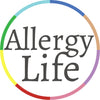It's hard to miss the supermarket shelves lined with chocolate Eggs and chocolate bunnies that take over every March and April. Not to mention the hot cross buns and other tasty treats that appear once a year!
This is no random occasion, but the celebration of Easter where along with the chocolate treats, may mean festivities and a celebration of sharing food with family and friends.
With all that chocolate, festivities and celebration, it can be a challenging time for someone with food allergies to navigate a safe & friendly alternative or avoid risky foods & situations altogether.
Whether you celebrate Easter or you just can't resist the treats, if you have Food Allergies, here are 10 Tips to Manage Food Allergies during Easter:
- Don't take unnecessary risks- Only try new foods and/or food products where you can clearly read the ingredients label and confirm that your allergen is absent.
- Carry your emergency medication (with some extras)- Make an extra effort to carry your medical bag with all of your medications, such as antihistamines and Adrenaline (Epinephrine) autoinjectors. Make sure you take them everywhere (even into the supermarket) and carry extras just in case you can't return home.
- Locate the nearest hospital in a new place- Easter has many public holidays, so you may go away on a trip to a new location. This means you may be in an unfamiliar environment. Check ahead of time to ensure you know the closest hospital in the case of an emergency reaction.
- Make the Easter party host allergy aware- If you have an Easter party, make the host 'allergy aware' of your (or your loved ones) allergies and the reaction risks. Send them your digital allergy card beforehand, or just text them the name of the allergens. (Extra Tip: Offer to bring an allergy-friendly meal and/or snacks along with you)
- If you are eating out, eat out with a plan- Call ahead to check if they are a friendly food and drink venue. When you're there, even if you've checked prior, always alert the wait staff and kitchen to ensure they can cater to your or your loved ones' allergies. Easter is a hectic period for food and drink venues, so even when they serve you, it's okay to ask again if the meal or drink is allergen-free, just to be sure!
- If having drinks out, drink out with a plan- If you plan on enjoying some Easter cocktails or drinks, check with the bar that there are no allergens in the ingredients. If there are allergens, ask for alternatives or find another safe drink. Even if you go to your regular bar, some bars usually dress the drinks for Easter or change some ingredients, so always check. (Extra Tip: Stay away from bar snacks that are just lying around! If they cater for it, order your own safe snacks separately or avoid bar snacks altogether)
- It's okay to say "No, Thank you" to unsafe gifts- Easter is a time of sharing, which means you can receive gifts, especially of the food type. If gifted any treats during Easter that do not have an ingredients label, do not eat the treat. You're not being rude; it's better to say "No, Thank You" than to put yourself or your loved one at risk of a reaction. If you can't say no, safely accept the gift (wear gloves, ask the person to place it directly into a bag or ask someone else to take it on your behalf). If you don't want it to go to waste, give it to someone else (who knows your situation) later.
- Be careful around Easter activities- Along with the food treats, Easter has numerous themed activities, such as Egg painting, Paper Plate Bunny crafting and Easter Egg hunts. Check the ingredients in craft supplies for allergens, such as paint, food containers, dyes and on eggs, especially during Easter Egg hunts.
- Carry some Easter activities of your own- If you have a little one with allergies and you're going to an Easter party, they may feel left out if they can't join the activities (due to the risk). Take some safe activities with you so they can still play separately but safely at a party.
- Host allergy-free Easter activities of your own- If you're organising an Easter party, along with your child's allergies, you may have other children with allergies there too. Here are some ideas to make the events more allergy-friendly:
- Plastic Easter Egg Hunt: Have allergy-friendly treats within the reusable hollow plastic eggs. Part of the activity could be to ask children to find particular coloured eggs to reduce confusion and make it inclusive of the child's individual allergies. (Note: The treats within the reusable plastic eggs should be individually wrapped to minimise cross-contamination and to allow ingredient checking before eating).
- Ceramic Egg painting: If allergic to eggs, egg painting can be done with dyeable ceramic eggs. Remember to check the ingredients in the dye for any allergens. If a child is allergic to the dye, you can use markers, stamps, and/or stickers that might be safe.
- Non-food Easter activities: There are always non-food related Easter activities if it gets too challenging. Activities such as watching Easter movies, having an Easter-themed dress up with a fashion show, singing Easter Karaoke songs, playing pin the tail on the Easter Bunny and more!
Easter is a fun time, and your allergies shouldn't stop you or your loved ones from participating in the festivities.
We hope the above tips help you with hatching your plans for Easter! If you are celebrating Easter or are just having some treats, we want you and your loved ones to have a Safe, Hoppy and Eggcellent time!
That's all yolks!
p.s. We left all the puns right until the end :) Happy Easter!
--
The above tips are also relevant if you have food intolerances or food-related autoimmune conditions such as coeliac disease.
The information provided on Allergy Life Australia is to generally educate and inform you about living with allergies, intolerances and conditions, and is not intended as medical instruction or as a substitute for diagnosis, examination and advice by a qualified health care provider.




